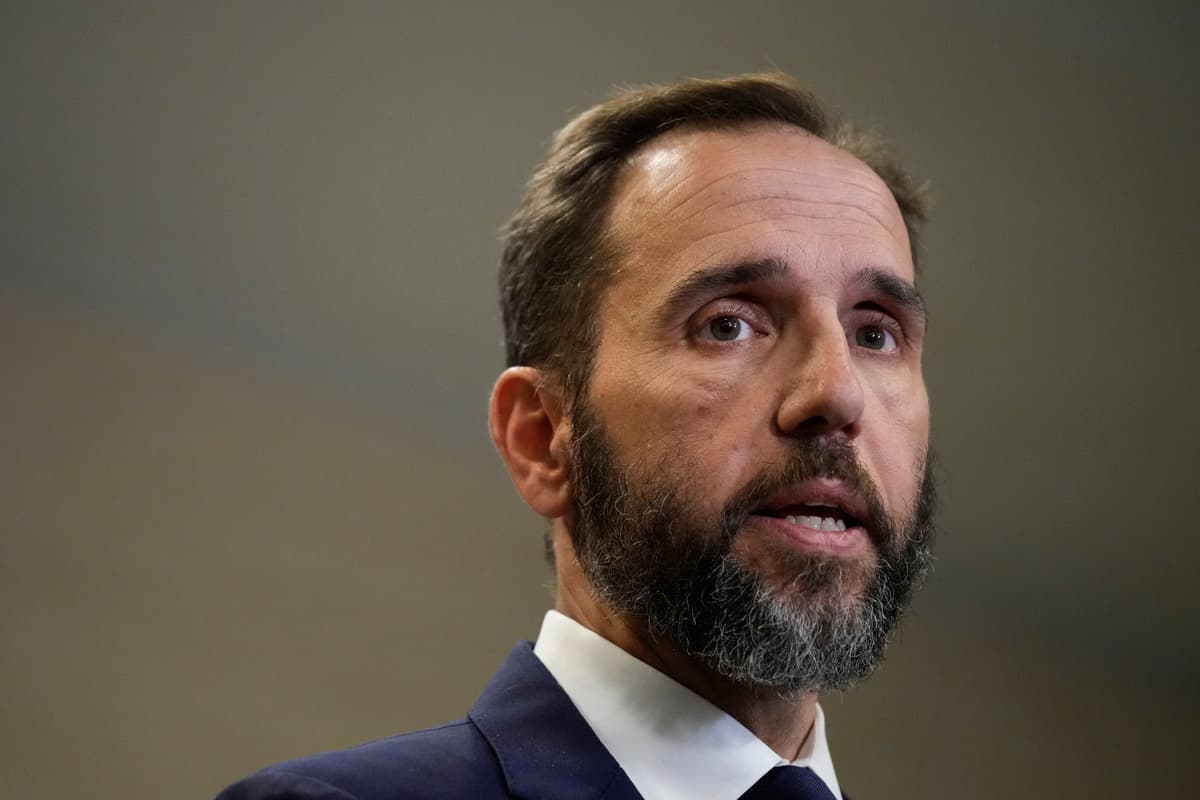Jack Smith, in a Defiant Final Report, Insists That He Could Have Convicted Trump for January 6
It was only the president-elect’s triumph in November that sank the special counsel’s prosecution for trying to reverse the result of the 2020 election.

Special Counsel Jack Smith’s final report on his election interference case against President-elect Trump for election interference discloses a prosecutor unshaken in his belief that he could have secured a conviction.
The rub, as Mr. Smith acknowledges in the 137-page dispatch, is that on Monday Trump will take the oath of office after Americans voted to return him to the White House. Mr. Smith reckons that “but for Mr. Trump’s election and imminent return to the presidency … the admissible evidence was sufficient to obtain and sustain a conviction at trial.”
“But for” is potent language in the law, as Mr. Smith would know well. It suggests the tightest of relationships between cause and effect, and is the test used to determine guilt in criminal law and liability in tort law. The special counsel is asserting that the only thing that prevented him from wrangling a “guilty” verdict out of a jury is the Department of Justice’s ruling that sitting presidents possess “categorical” immunity from all criminal prosecution.
Mr. Smith acknowledges that “the Constitution prohibits the continued indictment and prosecution of a president is categorical and does not turn on the gravity of the crimes charged, the strength of the government’s proof or the merits of the prosecution, which the office stands fully behind.”
The report, which is mandated by the special counsel regulations under which Mr. Smith served, was delivered to Congress at around midnight on Monday evening. The decision to release it was made by Attorney General Garland, and it came after Judge Aileen Cannon in the Southern District of Florida ruled that it could see the light of day.
The fate of its companion volume, which covers Mr. Smith’s prosecution of Trump and two others for the storage of classified documents at Mar-a-Lago, will be decided at a hearing before Judge Cannon on Friday. That case differs from the election interference one in that it is ongoing, on appeal before the 11th United States Appeals Circuit, against the two other defendants — Waltine Nauta and Carlos De Oliveira.
Mr. Smith decries “The intense public scrutiny of our Office, threats to their safety, and relentless unfounded attacks on their character and integrity” that he asserts has been the lot of his team during its pursuit of two of the highest-profile prosecutions in American history. He calls his staff “intensely good people who did hard things well.”
The special counsel’s report is suffused with his contention that both of the cases against Trump were worthy of prosecution. He quotes Justice Robert Jackson’s view that a case ought to be brought when “the offense [was] the most flagrant, the public harm the greatest, and the proof the most certain.” That, Mr. Smith avers, was his own standard.
The special counsel, who resigned from the DOJ last week, leaves the scene persuaded that “substantial evidence demonstrates that Mr. Trump … engaged in an unprecedented criminal effort to overturn the legitimate results of the election in order to retain power.” Mr. Smith adds that Trump “worked with other people to achieve a common plan: to overturn the election results and perpetuate himself in office.”
Mr. Smith is unsparing in his assessment that Trump used lies “as a weapon to defeat a federal government function foundational to the United States’ democratic process.” The prosecutor reckons that the “throughline of all of Mr. Trump’s criminal efforts was deceit.” The report contains images of the riot at the Capitol on January 6, and extensive footnotes detailing the chaos and violence ensued.
Mr. Smith acknowledges that Trump, while he was president, was impeached for incitement to insurrection. He, though, was discovered by the Senate to be “not guilty.” If he had been convicted at impeachment, Trump could have been removed from office — and possibly barred from serving again.
The 47th president has argued that under the impeachment judgment clause of the Constitution, an acquittal at impeachment precludes further criminal charges. That is a matter of debate among constitutionalists. Mr. Smith contends that “Impeachment … was never intended to be a substitute for criminal prosecution.”
While Mr. Smith writes that “there were no historical analogues to Mr. Trump’s alleged criminal conduct,” the Supreme Court ruled in Trump v. United States that all official presidential acts are presumptively immune from prosecution, while private ones are bereft of such protection. The special counsel acknowledges that “The conduct at issue in the Election Case involved both unofficial and official conduct” — but maintains that his case was viable nonetheless.

